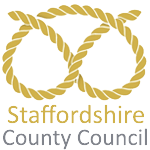Colombia communities project
Keele University mental health experts have been drafted in to help deal with the damage caused by decades of war, drugs and destruction in an isolated region of Colombia in South America.
 Working in partnership with two Colombian Universities, the Keele team has a three year mission to work out how to get mental health experts into the trauma ravaged region of Montes de Maria, near Cartegena de Indias, on the Caribbean Coast.
Working in partnership with two Colombian Universities, the Keele team has a three year mission to work out how to get mental health experts into the trauma ravaged region of Montes de Maria, near Cartegena de Indias, on the Caribbean Coast.
It’s all about helping and supporting some of the most vulnerable and damaged people in the world, particularly women, children, indigenous communities and other minorities.
Led by Dr Huseyin Cakal, from the School of Psychology, and Professor of Sociology Derek McGhee, the project is building a clear picture of need, drawing together a mass of information from out of the chaos.
The work will feed into the vital work of Keele’s Institute for Sustainable Futures, adding to the portfolio of work developing integrated approaches to community responsive sustainability policy and practise.
ISF Director Professor Chris Fogwill said Huseyin’s work put communities at the centre of front line service design. “The most effective and sustainable interventions are those designed using local expertise and community intelligence. This project brings together best practice in empowering minorities, putting them centre stage in devising services to tackle deep seated societal damage. This is all about rebuilding the human ecology so vital for a sustainable future,” he said.
They will work with Colombian specialists, led by Professor Wilson Lopez Lopez from Universidad Javeriana, Bogota, with Dr Diana Rubio, Denys del Rocio Garcia and Dr Pablo Abitol from the Technological University of Bolivar, Cartegena de Indias, and local non-government organisations, community leaders, and peace activists.
The collective will work to build trust and understanding, reaching into fractured isolated communities, traumtised by decades of conflict, violence and abuse. By opening up channels of communication to the darkest corners, they will create a trusted network to direct mental health support to those most in need.
Huseyin Cakal has first hand experience of the trauma caused by division and conflict. He grew up in conflict shattered island of Cyprus.
“This project is significant for me. In Columbia decades of violence, division, persecution, exploitation and crime have impacted most heavily on minorities, refugees and indigenous people. The damage goes deep and is hard to reach.
“The networks and techniques we establish through this project will provide a model to be copied in crisis torn communities around the world. This could make a major difference to the lives of some of the planet’s most traumatised people. It really is life changing. That’s what Keele is about,” he said.
The research has been made possible thanks to £330,000 fromy the Economic and Social Research Council (ESRC) Newton Caldas Fund and £100,000 from the Colombian Government.





























